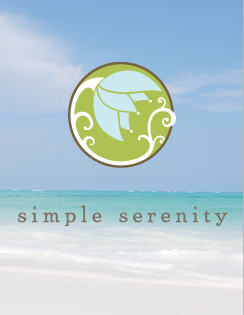“We live, embrace and put to rest our dearest things, including how we see ourselves, so we can resurrect our lives anew.”
~Mark Nepo
Q: Will you accept me as I am?
A: Absolutely! Not only will I accept you as you are, I honor and respect that where you are today is the perfect place to start.
Q: Is there any hope for me?
A: Yes, and the fact that you are visiting my website means that you believe there is hope too.
Q: Why do you think you can help me?
A: As someone who has walked in your shoes, I have the vision, empathy and experience to work with you in a deeper, richer more honest way. By partnering with you on your path to wellness, I will guide you to look at yourself and your place in the world with a loving, healthy perspective.
Q: What qualifies you to offer peer counseling?
A: The State of Washington requires that a peer counselor has experienced and recovered from the same condition that they counsel. Having recovered from a decade of anorexia nervosa and as one of only a few certified MBSR practitioner in Washington State, I establish mindfulness as the foundation for all of my programs. Mindful awareness is the key to unlocking true healing and transformation.
Q: How do I know I can trust you?
A: Trust is one of my highest values and is at the core of my practice. Trust is a two-way process we work on together, deepened by our mutual commitment to your recovery. Please see how other clients perceive working with me on my Testimonials page.
Q: What does living mindfully mean?
A: Living mindfully is being aware and awake – living your life with purpose, passion, love and service. This is about living your best life – a life of radiant health and wellness, balance and beauty. Living in a mindful way, we experience the ability to respond to stress in our lives rather than continue a pattern of mindfless reaction. We learn to live life with simplicity and serenity – and for certain, a sense of awe and wonderment. As the activity in our minds begins to settle down, a sense of calm and focus is available. We become rejuvenated and renewed. Bringing the fullness of awareness to each moment is the key to living mindfully.
Q: What will I experience if I participate in one of your programs?
A: Mindful practices will help you create and commit to well-being in your life. I have designed a well balanced, state of the art program for creating a healthier body, lifestyle and state of mind. We will focus on mindfulness practices, stress management and resiliency techniques, effective communication and time management skills, guidelines for leading a physically active life and healthy eating. Most importantly, we will explore, using an “appreciative inquiry” style, your strengths and ‘what is working now’. From this foundation, we will create the architecture for a life of healing and wholeness, wellness and well-being.
Q: Do mindful practices address eating habits?
A: Being mindful while eating is an important part of living mindfully in life. Often, many of us eat mindlessly, barely tasting our food. Beginning to eat mindfully in life helps us get back in touch with our hunger and fullness and to know what our bodies truly need. Becoming fully aware of the taste, texture, sight and smell of food will enhance the experience of eating, bringing more enjoyment and satisfaction the experience of food.
Q: Why don’t you use diets?
A: Dieting is an “external way” to regulate food intake. Success with weight health and eating habits come from an “internal” place, a personal commitment to becoming and to staying healthy. Using external factors to determine what, how much, and when to eat is a dangerous path because it disconnects us from our bodies and our intuition.
Q: What is Intuitive eating?
A: Intuitive eating is learning to look inside of yourself and listen to your own internal cues. Intuitive eating is an anti-diet approach to nourishment. There are no rules to break and no temptations to resist. Intuitive eating, unlike dieting and meal planning, is not a set up for failure.
Q: How important is body image?
A: A healthy body image is necessary for health and well-being. Though our culture tells us to be “thin and/or buff”, we must befriend our bodies – as they are – and live in acceptance and gratitude in order to have true wellness. It is time to stop judging our bodies harshly and learn to appreciate their inner being, soul and spirit
Q: Exercise is hard for me – what are the benefits?
A: Regular activity of some sort is a vital part of creating health. Our bodies were designed to move, stretch and run. Exercise is essential in order to have a strong, heart, and a strong body. When we can enjoy regular exercise and accept it as a lifetime commitment, the struggle won’t seem so difficult.
If you don’t see your question answered here, drop us a note and we’ll get back to you shortly.

